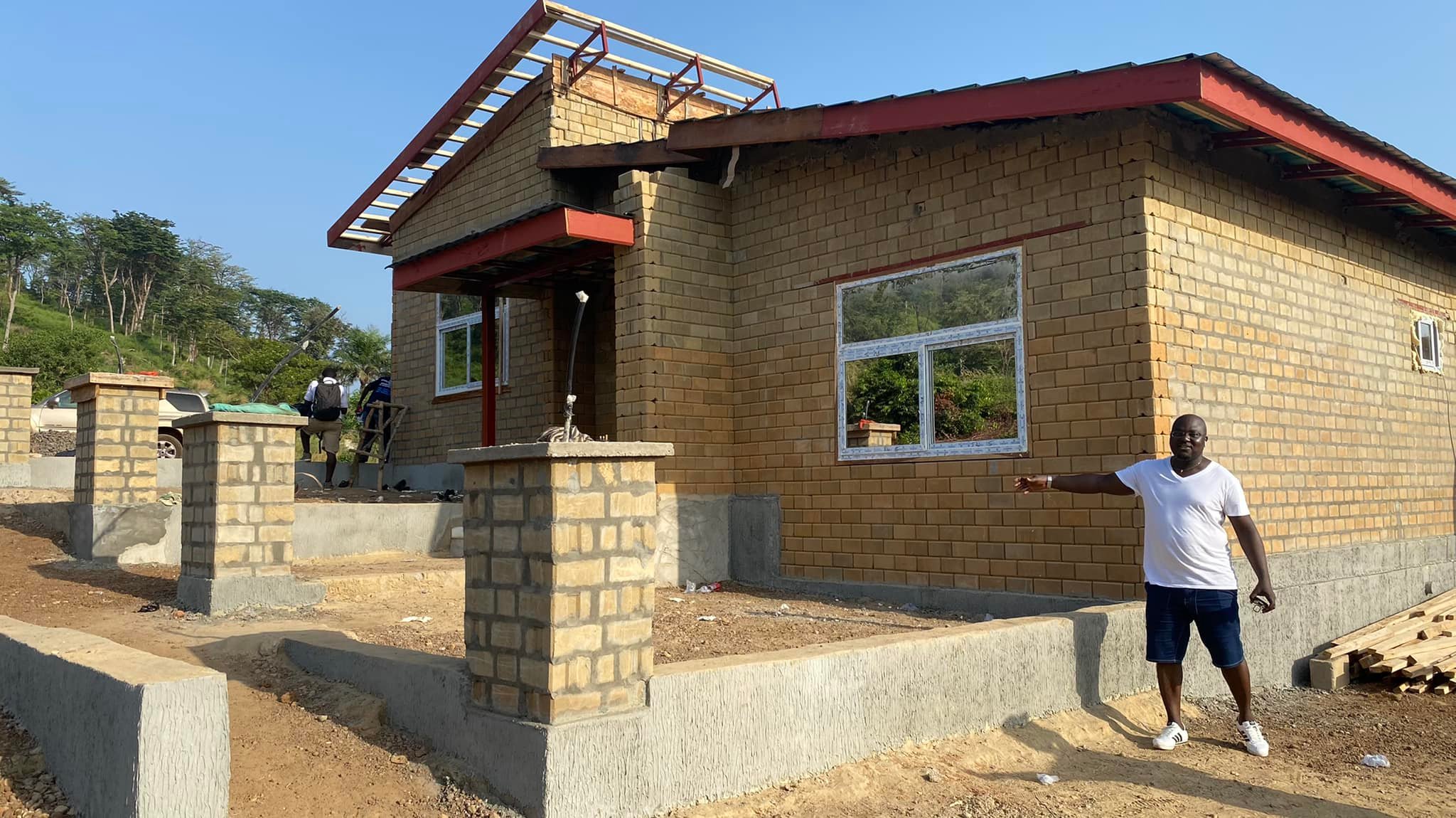
First, both of them are construction materials made from natural soil. Usually sandy-loam soil – a type of soil that contains a mixture of sand, silt, and clay particles. Both are compressed using a manual press or a hydraulic press like the Hydraform machine.
However, Unstabilized earth blocks and stabilized earth blocks differ in terms of their properties and the methods used to produce them. Here are the main differences:
Stabilization: Stabilized earth blocks are made by adding a stabilizing agent to the soil to improve its strength and durability. The stabilizing agent can be cement, lime, or a combination of both. The Hydraform and ecological blocks we produce are stabilized and we use 42.5 Portland cement. Unstabilized earth blocks are made without any added stabilizing agent and are therefore less durable and less resistant to moisture.
Strength: Stabilized earth blocks are stronger than unstabilized earth blocks due to the addition of the stabilizing agent. This makes them better suited for structural applications such as load-bearing walls. Unstabilized earth blocks are generally used for non-load bearing applications such as partition walls.
Durability: Stabilized earth blocks are more durable than unstabilized earth blocks and can resist weathering, erosion, and moisture better. They are also less prone to cracking or crumbling over time.
Production: Stabilized earth blocks are typically produced using a machine called a hydraulic press. The press applies pressure to the soil and stabilizing agent mixture to form the block. Unstabilized earth blocks are typically made using a simple mold that is filled with soil and compressed manually.
Cost: Unstabilized earth blocks are cheaper to produce than stabilized earth blocks because they do not require any stabilizing agents. However, the additional strength and durability provided by stabilized earth blocks can make them more cost-effective in the long run.
Overall, stabilized earth blocks are a more durable and stronger option for construction applications than unstabilized earth blocks. However, they may also be more expensive to produce. The choice between the two depends on the specific requirements of the project, including the structural needs and budget constraints.
Subscribe to our YouTube channel to learn more https://youtu.be/mr46Lrf8zZ4




